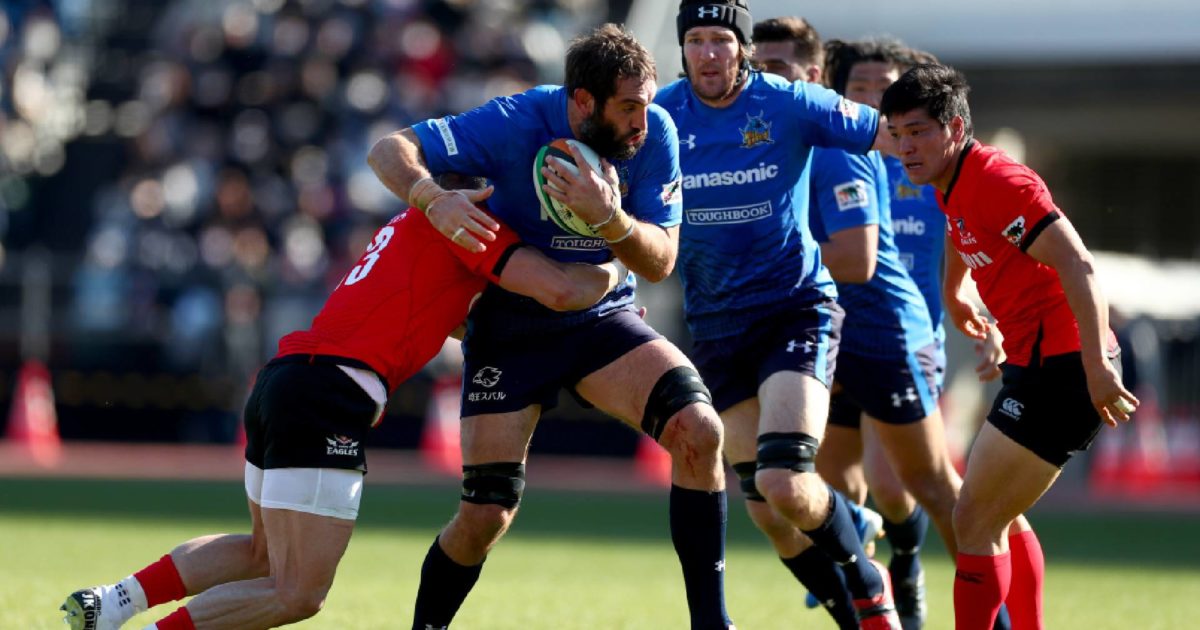'They'd do fine': All Blacks star Sam Whitelock backs Top League involvement in Super Rugby

All Blacks star Sam Whitelock believes that Japan’s best Top League sides would more than hold their own if they were allowed into a re-structured Super Rugby competition.
Despite the four SANZAAR unions having Super Rugby and Rugby Championship agreements in place until 2025, speculation has been rife about the prospect of South Africa departing the southern hemisphere to join forces with European nations.
Favourable time zones and much more financial prosperity in Europe would presumably act as the main selling points for a cross-hemisphere switch, with the presence of the Cheetahs and Southern Kings in the Pro14 evidence that such a move could be viable.
South Africa’s speculated departure from SANZAAR coincides with the highly-discussed future of Super Rugby, which has come into the spotlight as the economic downfall that has come with the coronavirus pandemic has forced a re-think about the competition’s structure.
A steep decline in fan interest and over-saturation of playing talent has deeply diminished the quality of the cross-border league, leading pundits in New Zealand and Australia to call for a revamped trans-Tasman competition with an Asia-Pacific element.
The imminent axing of the Sunwolves, however, is indicative of SANZAAR’s desire to stray away from the Asian market after the Japanese franchise struggled for competitiveness since their induction into Super Rugby in 2016.
Back in New Zealand from a brief stint with the Panasonic Wild Knights in the Top League, Whitelock said there could still be a place in a new-look Super Rugby format for some Japanese teams.
The 31-year-old was impressed by the physicality and style of play in Japan’s premier domestic competition, which had attracted a plethora of international stars from New Zealand, Australia and South Africa following last year’s World Cup.
https://www.instagram.com/p/B7T-AUzhj4K/?utm_source=ig_web_copy_link
“The actual style over there, there’s some really physical, athletic guys, and they play hard,” Whitelock said via Zoom.
“If they would step into a comp, I think they’d do fine. Especially if it’s the top two or three teams.
“But you never actually know until they get in there and have a go how they’re going to compete.
“The top couple of teams would compete, it would be cool to have that Japanese style thrown in to a competition – whatever that competition looks like.”
Former World Cup-winning Wallabies midfielder Tim Horan last month suggested that the Australasian nations should look to tap into Asia and the Pacific rather than persist with South Africa and Argentina, whose unfavourable time zones have become unattractive for fans and broadcasters.
“Super Rugby will look very different in the next five years,” he said on Fox Sports.
“I think it’s probably got to be an Asian-Pacific type model – Australia, New Zealand and allow Japan to stay in the model.
“Then you look at Fiji, Samoa, Tonga.”
Those sentiments were echoed by former All Blacks first-five Andrew Mehrtens, who appeared on the offtheball.com podcast alongside ex-Wallabies coach Michael Cheika earlier this week.
“New Zealand is going to benefit ultimately from a revamped Super Rugby, and Australia will too,” Mehrtens said.
“I’ve said for quite a while now that while the competition has expanded, it hasn’t expanded in a consistent or logical way.
“It’s just added a couple of teams here and there. It went to 14, 15, then it went to 18 and dropped back down.
“The hindrance in Super Rugby is that there are games in Argentina now, and the time zone is not great for New Zealand and Australia, the same with South Africa.
“Not many people are watching even their own teams at 3am in the morning coming out of South Africa.”
A revised New Zealand-only domestic competition, dubbed Super Rugby Aotearoa, is scheduled to kick-off on June 13, while discussions for a similar concept in Australia are well underway.














































































